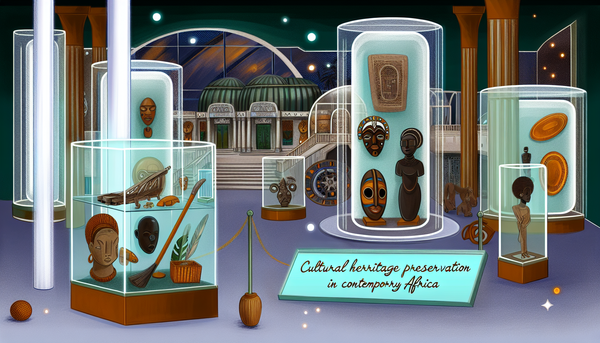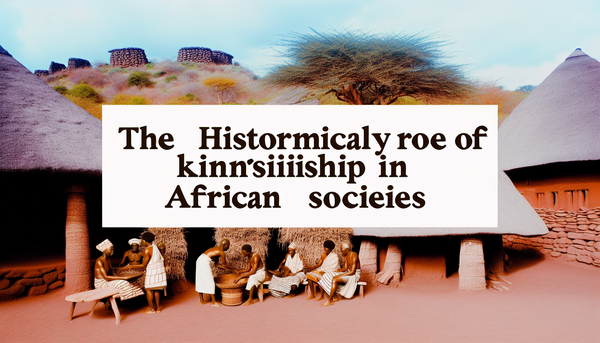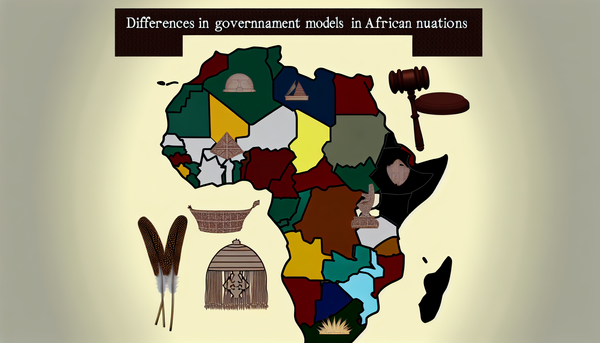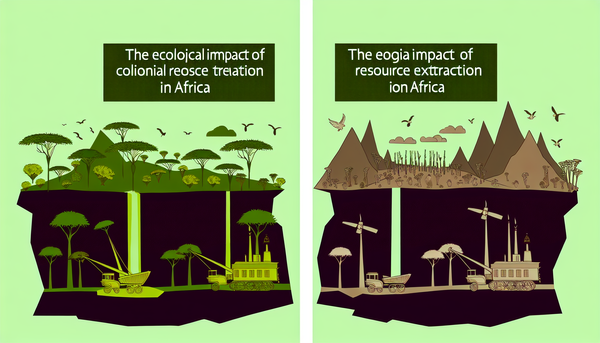Title: Colonial Legacy in Modern Africa: Impact on Governance, Economics, and Culture
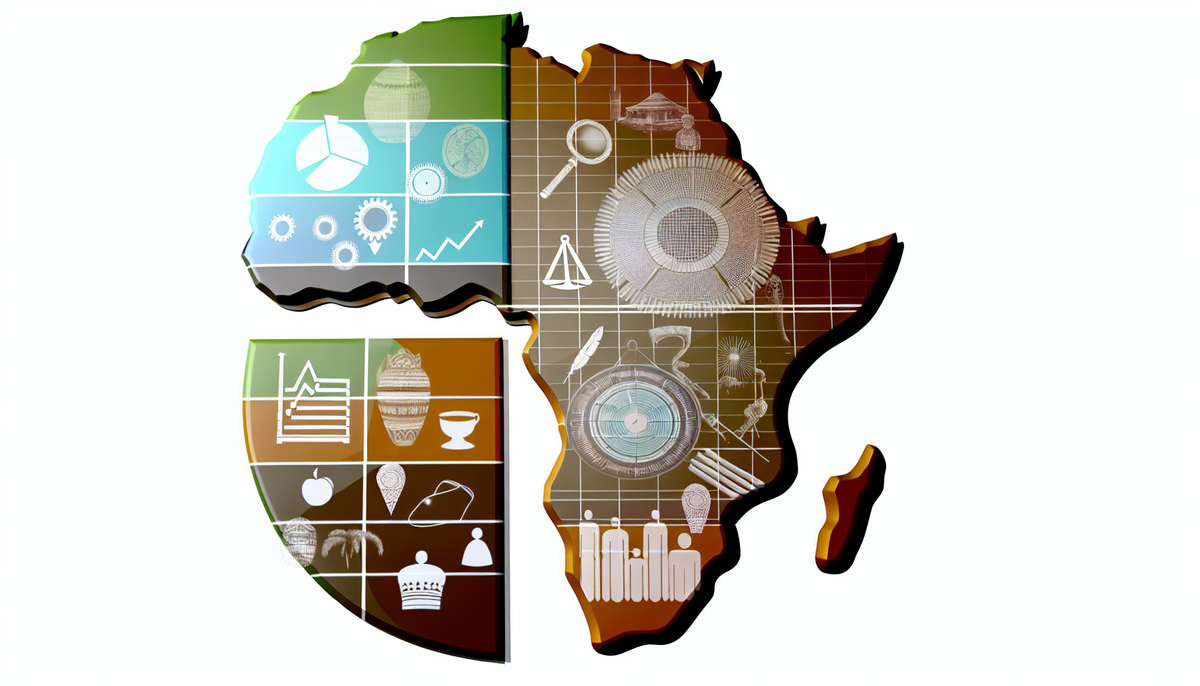
Exploring the Historical Context and Origins of Colonialism in Africa
Colonialism in Africa can be traced back to the 15th century when European powers embarked on a period of exploration, conquest, and exploitation of African territories. The era of colonialism was driven by a confluence of economic, political, and technological factors that enabled European nations to expand their empires and establish colonial dominance over vast regions of Africa.
The roots of colonialism in Africa can be found in the competition among European powers for wealth, resources, and strategic advantage. The desire for precious commodities such as gold, ivory, and slaves, coupled with advances in navigation and military technology, fueled the expansionist ambitions of European empires in Africa. The quest for economic prosperity, coupled with the belief in the superiority of European civilization, provided a rationale for the colonization and "civilizing mission" of Africa.
The historical context of colonialism in Africa also reflects the impact of the transatlantic slave trade, which had devastating consequences for African societies and contributed to the destabilization of political structures and social dynamics on the continent. The legacy of slavery and the dehumanization of Africans as commodities for trade played a significant role in shaping the power dynamics and attitudes that underpinned colonial rule in Africa.
As European powers established colonies and trading posts along the African coast, they gradually expanded their control over inland territories through conquest, coercion, and collaboration with local leaders. The era of colonialism in Africa was characterized by the imposition of foreign laws, customs, and systems of governance that marginalized indigenous populations and undermined traditional structures of authority.
By exploring the historical context and origins of colonialism in Africa, we gain a deeper understanding of the complex forces and dynamics that shaped the colonial encounter and its far-reaching implications for African societies and the continent as a whole.
The Enforcement of Arbitrary Borders and Its Consequences on National Unity
The arbitrary drawing of borders by colonial powers during the Scramble for Africa had profound and lasting consequences on national unity and identity in the continent. European colonizers divided Africa into distinct territories without consideration for pre-existing ethnic, linguistic, or cultural boundaries, often resulting in the fragmentation of cohesive communities and the creation of artificial nation-states.
The enforcement of arbitrary borders in Africa has contributed to a legacy of territorial disputes, border conflicts, and ethnic tensions that continue to challenge the unity and stability of many African nations. The imposition of colonial boundaries disrupted traditional trading networks, separated families and communities, and created divisions that persist to this day. The arbitrary nature of colonial borders has bred resentment, marginalization, and separatist movements among disenfranchised groups seeking to assert their autonomy and reclaim their ancestral lands.
Furthermore, the legacy of arbitrary borders has hindered efforts to foster national cohesion, forge shared identities, and promote a sense of unity among diverse African populations. Divisions created by colonial boundaries have often fueled ethnic rivalries, political instability, and social unrest, undermining the prospects of meaningful development and progress in many African countries. The consequences of arbitrary borders on national unity highlight the enduring impact of colonialism on the socio-political fabric of Africa.
Addressing the consequences of arbitrary borders requires a concerted effort to promote dialogue, reconciliation, and cooperation among diverse ethnic and cultural groups within African nations. By acknowledging the historical injustices wrought by colonial border demarcations and working towards inclusive and equitable governance structures, African countries can begin to overcome the legacy of division and foster a sense of national unity built on shared history, values, and aspirations.
Economic Exploitation: Resource Extraction and Its Legacy
Colonial powers engaged in widespread economic exploitation of African resources during the era of colonialism, leading to long-lasting consequences for the economic development and stability of many African nations. The extraction of natural resources, such as minerals, timber, and agricultural products, was a central pillar of colonial economic policies, driven by the desire to enrich European empires at the expense of African populations.
The legacy of resource extraction during the colonial era is evident in the patterns of economic dependency, environmental degradation, and unequal wealth distribution that continue to plague many African countries today. The extractive industries established by colonial powers often operated with little regard for the long-term sustainability of natural resources or the well-being of local communities, leading to the depletion of resources, ecological damage, and socioeconomic disparities.
The economic exploitation of African resources also contributed to the perpetuation of colonial power structures and the marginalization of indigenous populations within their own lands. European colonizers controlled the means of production, transportation, and trade of key resources, dictating terms that favored their own economic interests and deprived African communities of equitable benefits from their own natural wealth.
The legacy of economic exploitation in Africa underscores the need for sustainable, inclusive, and transparent approaches to resource management that prioritize the well-being and equitable participation of local populations. By addressing the historical injustices of resource extraction, African nations can work towards building resilient economies, promoting responsible stewardship of natural resources, and fostering economic empowerment that benefits all segments of society. Efforts to redress the legacy of economic exploitation are essential for realizing a more just, equitable, and prosperous future for Africa and its people.
Cultural Displacement: Language and Education Systems Imposed by Colonizers
One of the enduring legacies of colonialism in Africa is the cultural displacement caused by the imposition of foreign languages and education systems by European colonizers. Language was a key tool used by colonial powers to assert dominance, control communication, and disseminate their ideologies among African populations. The imposition of European languages, such as English, French, and Portuguese, marginalized indigenous languages and eroded traditional modes of expression and cultural identity.
Education systems introduced by colonial authorities were designed to indoctrinate African populations with Western values, beliefs, and knowledge systems, often at the expense of indigenous forms of learning and cultural practices. Schools established by colonizers prioritized European history, literature, and science, while neglecting or denigrating African languages, histories, and traditions. The education gap perpetuated by colonial policies reinforced social hierarchies, limited economic opportunities, and perpetuated cultural assimilation among Africans.
The consequences of cultural displacement through language and education systems imposed by colonizers continue to impact African societies today, manifesting in persistent challenges related to cultural preservation, language revitalization, and decolonizing educational curricula. Efforts to reclaim indigenous languages, promote multilingualism, and incorporate diverse cultural perspectives in education are essential for confronting the legacy of colonial cultural displacement and nurturing a more inclusive and equitable society in Africa.
By recognizing the profound impact of colonial language and education policies on cultural displacement, African nations can work towards reclaiming their cultural heritage, promoting linguistic diversity, and fostering educational systems that empower individuals to embrace their identities and celebrate the richness of Africa's diverse cultural traditions. Efforts to decolonize language and education are crucial steps towards building a more inclusive and culturally vibrant future for Africa and its people.
Religious Influence: The Spread of Christianity and Its Impact on Indigenous Beliefs
The spread of Christianity in Africa during the colonial period had profound consequences on indigenous belief systems, spiritual practices, and cultural identities. European missionaries played a key role in disseminating Christian teachings, establishing churches and schools, and promoting Western values and norms among African populations. The imposition of Christianity as the dominant religion by colonial authorities led to the marginalization, suppression, and denigration of traditional African religions and spiritual practices.
The introduction of Christianity in Africa brought about significant changes in social structures, moral codes, and worldviews, often clashing with and displacing indigenous beliefs that had been integral to African communities for centuries. The portrayal of African religions as pagan, primitive, or superstitious by Christian missionaries contributed to the stigmatization and devaluation of traditional spiritual practices, undermining the cultural autonomy and spiritual sovereignty of indigenous peoples.
The impact of Christian missionary activity on African societies was not solely religious but also extended to realms of politics, education, and social organization. Missionary efforts to convert Africans to Christianity often entailed the imposition of European norms, values, and modes of governance, challenging existing power structures and authority systems rooted in indigenous traditions. The spread of Christianity in Africa thus had far-reaching implications for the social, cultural, and political dynamics of African communities, reshaping identities, beliefs, and relationships within the colonial context.
The legacy of Christian missionary activity in Africa continues to influence contemporary debates around religious pluralism, cultural heritage, and interfaith dialogue in the region. By acknowledging the complex history of religious influence in Africa and supporting efforts to preserve and revitalize indigenous belief systems, African nations can navigate the legacy of colonial-era religious impositions and embrace a more inclusive and respectful approach to spirituality and cultural diversity.
Resistance and Resilience: Indigenous Reactions and Movements Against Colonial Rule
Throughout the era of colonialism in Africa, indigenous populations exhibited remarkable resilience and mounted diverse forms of resistance against the oppressive policies and practices of colonial powers. From armed uprisings and rebellions to nonviolent protests and cultural movements, Africans employed a range of strategies to challenge colonial rule, assert their autonomy, and preserve their cultural heritage and identities.
Armed resistance movements, such as the Maji Maji Rebellion in East Africa and the Mau Mau Uprising in Kenya, demonstrated the willingness of African communities to defend their land, sovereignty, and autonomy against foreign incursions. These movements symbolized the rejection of colonial subjugation and the assertion of indigenous agency and self-determination in the face of overwhelming military superiority.
Nonviolent forms of resistance, including boycotts, strikes, and civil disobedience, also played a significant role in challenging colonial authority and undermining the legitimacy of colonial governance. Indigenous leaders and grassroots activists mobilized communities, organized resistance networks, and utilized alternative channels of communication to amplify their voices and demand justice, equality, and self-governance.
Cultural movements and intellectual expressions, such as the Negritude movement and Pan-Africanism, emerged as powerful tools for reclaiming African identities, histories, and narratives that had been erased or distorted by colonial ideologies. These movements fostered a sense of solidarity, pride, and unity among diverse African populations, transcending colonial borders and divisions to envision a shared future based on mutual respect, understanding, and collaboration.
The legacy of resistance and resilience against colonial rule in Africa continues to inspire contemporary struggles for justice, equality, and liberation across the continent. By honoring the courage, sacrifices, and ingenuity of indigenous resistance movements, African nations can draw strength from their history of defiance and resilience in confronting present challenges and shaping a more inclusive, equitable, and empowered future for all.
Post-Colonial Challenges: Navigating Governance and Development in the Aftermath
The legacy of colonialism in Africa continues to pose significant challenges for post-colonial nations as they navigate the complexities of governance, development, and nation-building in the aftermath of colonial rule. Decades after gaining independence, many African countries grapple with issues of political instability, economic dependency, social inequality, and institutional weaknesses that stem from the colonial past.
One of the key post-colonial challenges facing African nations is the legacy of colonial boundaries, which often fail to correspond with ethnic, linguistic, or cultural realities on the ground. These artificial borders have contributed to regional conflicts, ethnic tensions, and governance crises, impeding efforts to forge cohesive national identities and promote inclusive governance structures that reflect the diversity of African societies.
Another pressing challenge is the persistence of economic exploitation and dependency that originated during the colonial period. African nations continue to contend with unequal terms of trade, extractive industries, and debt burdens that limit their economic sovereignty and hinder sustainable development. The legacy of colonial economic structures necessitates efforts to build diversified, self-sufficient economies that prioritize local empowerment, equitable resource distribution, and inclusive growth strategies.
Addressing post-colonial challenges in Africa requires a multi-faceted approach that tackles entrenched legacies of colonialism while fostering inclusive, participatory, and accountable governance mechanisms. By engaging in dialogue, reconciliation, and mutual understanding, African nations can work towards redressing historical injustices, promoting social cohesion, and harnessing their collective potential for transformative development and progress. Navigating the complexities of post-colonial challenges demands vision, leadership, and cooperation to build resilient, prosperous, and equitable societies that honor the struggles and aspirations of African peoples.
